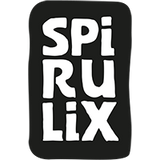10 facts - that's why spirulina is healthy
Full of nutrients such as iron, magnesium, B vitamins and many more, Spirulina is said to keep the body healthy and is often declared a miracle algae or superfood. But what is actually in the little green alga and what makes it so great? These 10 facts reveal it and reveal the secret of spirulina!
Fact 1: What is Spirulina and why is it so healthy?
Basically, spirulina is not a type of algae at all, but one of the so-called cyanobacteria. Spirulina is one of the oldest living creatures in the world and has already colonized the planet around three billion years ago.
Fact 2: How does spirulina grow?
In nature, the microalgae grows in salt or freshwater lakes and inhabits shallow water areas in tropical and subtropical climate zones. In the meantime, however, Spirulina is also cultivated in Austria and no longer needs long transport routes.
Fact 3: Spirulina as a dietary supplement
Spirulina has been sold in flakes or powder form as a dietary supplement since the 1970s thanks to its high nutrient density. The recommended consumption is 3-5 grams per day, i.e. one teaspoon of the powdered spirulina algae.
Fact 4: Nutrient-rich vegetables
Spirulina consists of 60% high-quality, vegetable proteins that the body can use very well. In addition, Spirulina contains a range of essential amino acids, vitamins (B1, B9, B3, A and E), minerals (magnesium, iron and zinc), and antioxidants (phycocyanin and chlorophyll).
For us, Spirulina is a vegetable and sees it as a building block for a balanced diet. For this reason, we also incorporate them into various foods, such as muesli, crackers or nougat.
Fact 5: Effect of the miracle algae
The regular intake of spirulina can also contribute to a balanced diet and help to cover the daily requirement of some minerals. This can strengthen the immune system, support the intestinal flora, lower blood pressure and promote detoxification of the body.
Fact 6: Possible side effects
The side effects of spirulina are still controversial and there are few scientific studies that provide clear results. However, no compromises should be made when it comes to the quality and origin of the Spirulina algae. If the alga grows in uncontrolled conditions, such as water with an increased mercury content, the alga absorbs it and can cause great damage in the body by eating it.
Fact 7: Spirulina as a source of vitamin B12
Despite the high proportion of vitamin B12, spirulina is not suitable as a dietary supplement for the above, since only 20% of the vitamin present can actually be utilized by the body. Spirulina is therefore not a substitute for a vitamin B12 supplement.
Fact 8: The right dosage
The recommended daily consumption of spirulina is 3-5 grams. Pellets and tablets have to be taken 2-5 times a day, while spirulina powder can ideally be incorporated as a component in liquids such as juices, smoothies or smoothie bowls. Due to the powder form, nutrients and vitamins can be absorbed through the oral mucous membranes and thus be utilized more quickly by the body.
In addition to the powder, we also offer flakes. These are ideal for the porridge or to sprinkle over the salad. If it has to be quick, simply stir a teaspoon of spirulina flakes into the water and enjoy.
Fact 9: Origin of Spirulina: Buy regionally!
No compromises should be made when it comes to the quality and origin of the spirulina algae. If the alga grows in uncontrolled conditions, such as water with an increased mercury content, the alga absorbs it and can cause great damage in the body by eating it. Therefore, the same applies to spirulina algae: Buy local! The start-up Spirulix from Austria is a pioneer and grows the small miracle algae on its own algae farm in the middle of Lower Austria.
Fact 10: Spirulina for Pets
Spirulina not only has a positive effect on us humans, our four-legged friends (dogs, cats) also benefit from it. The microalgae added to the feed can, among other things, provide more strength, endurance and improved digestion.











